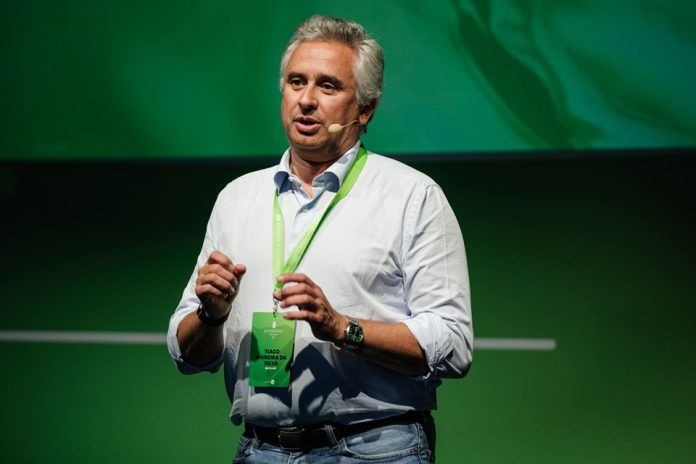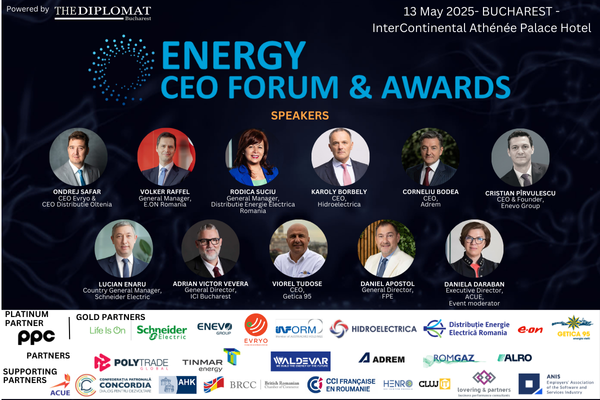“Consumer behaviors continue to evolve, but glass remains the preferred packaging material, mainly due to its health benefits and recyclability. In 2025, especially in Romania, we continue to face high energy prices. To mitigate this challenge, we are exploring alternative energy sources and optimizing furnace efficiency to reduce costs while maintaining our sustainability goals,” Tiago Moreira da Silva, CEO BA Glass told Sustainability-Today.
“BA Glass aims to further increase cullet usage, optimize logistics, and expand greener transportation solutions. Collaboration with customers on sustainability initiatives and the adoption of green fuels in furnaces are also key focus areas.
Regarding cullet usage, the increase in cullet return from RetuRo (DRS) is perfectly timed and aligned with our goals and needs. Following our new investments in the Bucharest plant, we require significantly more cullet than before.”
What were the most significant achievements your company made in 2024?
BA Glass achieved a major milestone by receiving CDP’s highest climate rating, an “A,” for the third consecutive year, reaffirming its commitment to environmental transparency. This recognition places BA Glass among the leaders in climate action. We reduced our direct emissions (Scope 1) by nearly 2% and significantly increased the recycled glass rate in our glass recipe. For the fourth consecutive year, our electricity is 100% renewable, resulting in zero market-based Scope 2 emissions. Additionally, BA Glass improved supply chain emissions (Scope 3) by 10%.
Can you share specific projects or initiatives that had the greatest impact on reducing waste or promoting resource efficiency?
Several lightweight projects were implemented with customers, as reducing weight has a direct impact on CO₂ emissions. We increased the use of recycled glass in production by 14%, positioning ourselves above industry standards for recycled content, reducing reliance on virgin raw materials, and lowering CO₂ emissions. Additionally, we reintegrated various waste materials from different sources, minimizing landfill waste. We also improved our supply chain emissions (Scope 3) by expanding the use of bio-LNG trucks, which reduce CO₂ emissions by approximately 90%, and successfully tested a fully electric battery truck.
What new technologies, solutions, or processes did your company implement in 2024 to support circular economy principles?
BA Glass acquired two glass recycling plants in the UK (Recresco), increasing cullet usage and reducing CO₂ emissions. We also partnered with customers to collect and reintegrate rejections from their manufacturing plants, strengthening resource efficiency.
What were the biggest challenges you faced in 2024, such as regulatory hurdles, consumer behavior, or supply chain issues?
Stricter environmental regulations influenced the industry. While sustainability remained key, rising inflation and energy prices posed challenges. Despite these challenges, we focused on increasing recycled content, enhancing furnace efficiency, and developing lightweight glass solutions.
Consumer behaviors continue to evolve, but glass remains the preferred packaging material, mainly due to its health benefits and recyclability. In 2025, especially in Romania, we continue to face high energy prices. To mitigate this challenge, we are exploring alternative energy sources and optimizing furnace efficiency to reduce costs while maintaining our sustainability goals.
What are your company’s main priorities and objectives for 2025?
BA Glass aims to further increase cullet usage, optimize logistics, and expand greener transportation solutions. Collaboration with customers on sustainability initiatives and the adoption of green fuels in furnaces are also key focus areas.
Regarding cullet usage, the increase in cullet return from RetuRo (DRS) is perfectly timed and aligned with our goals and needs. Following our new investments in the Bucharest plant, we require significantly more cullet than before.
Are there any upcoming projects or initiatives planned for 2025 that focus on advancing sustainability and circularity?
Our projects include investments in furnace technology, energy efficiency improvements, and customer collaborations on sustainable transport, lightweight glass, and secondary packaging reduction. We will also continue monitoring glass collection initiatives in several countries where we operate, namely Portugal and Romania.
What opportunities do you see for scaling circular economy initiatives in Romania?
BA Glass is closely following the progress of RetuRO, Romania’s national deposit return system. We see significant potential in improving collection rates, optimizing recycling infrastructure, and fostering greater consumer participation to strengthen circular economy efforts.
Looking at current forecasts, the success of RetuRO and the higher percentage of cullet usage can create a unique opportunity in Romania, allowing BA to provide Romanian customers with bottles and jars containing one of the highest cullet incorporation rates in Europe. Recycled glass must be viewed as a natural resource that benefits all Romanians rather than a specific stakeholder alone, reinforcing the importance of collective responsibility in circular economy practices.
What steps are you taking in 2025 to increase awareness and adoption of circular economy practices among consumers or businesses?
We actively promote glass circularity, and industry collaborations such as RetuRO and the Circular Economy Coalition (CERC) are key. BA strives to be part of all initiatives that engage stakeholders to improve glass collection for recycling. We are constantly seeking partners to boost the circular economy.
How do you anticipate Romania’s economic conditions or regulatory environment will affect your circular economy efforts in 2025?
While economic challenges like inflation and fiscal deficits could impact investments in circular practices, EU regulations will drive sustainability efforts. Romania’s commitment to a 90% beverage container collection rate by 2029 through its DRS system presents an opportunity for growth and innovation.
At this moment, the circular economy in Romania is experiencing positive momentum. This is the time to continue building on that success and extend efforts to other material streams. Achieving this broader reach is essential to achieving a true circular economy.
How do you see Romanian consumers’ attitudes toward sustainability and the circular economy evolving in 2025?
Consumer awareness and participation in circular economy initiatives are increasing. Romania’s DRS system has already collected over three billion beverage containers, aiming to meet the EU’s 90% collection target by 2029. This achievement deserves congratulations to all stakeholders and highlights the positive contribution of Romanian citizens to this milestone.
It is important to emphasize that success must extend beyond beverage containers. Expanding recycling efforts to other material streams is vital. We must also consider how much of the DRS system’s success results from the deposit value incentive versus a deeper mindset shift toward recycling and circular economy principles.
What role do you see your company playing in fostering a culture of sustainability and circularity in Romania?
BA Glass leads by example, embedding sustainability in its operations and inspiring other industries to adopt circular practices. We focus on innovation, resource efficiency, and collaboration to drive environmental responsibility.
Our doors are always open to the community, hosting thousands of students every year to demonstrate circular economy principles in action. For example, our educational programs include hands-on recycling workshops and guided plant tours, where students learn about glass recycling’s positive environmental impact.
What advice would you give to policymakers, businesses, or consumers to help accelerate the transition to a circular economy in Romania?
Policymakers should implement clear regulations, financial incentives, and public awareness campaigns. Businesses should design products for durability and reusability. Consumers can support sustainability by choosing recyclable materials, such as glass packaging.




